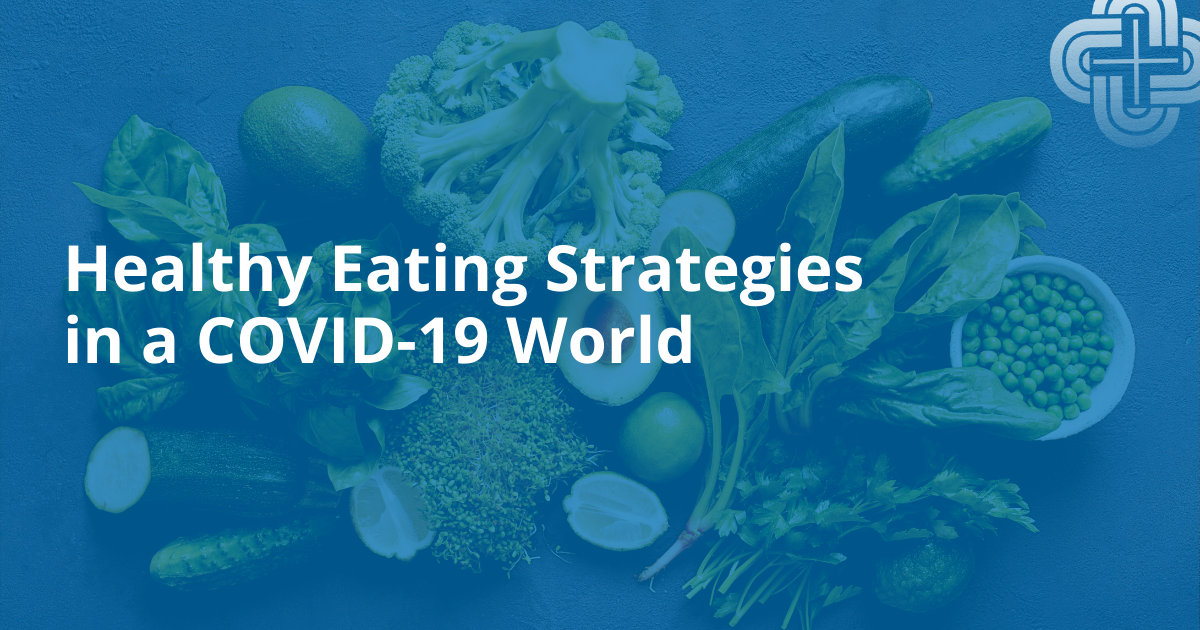Eating in Place: Healthy Strategies in a COVID-19 World
- Category: COVID-19
- Posted On:

Media Contact: Karina Rusk
831-759-1843
One of the new realities of life in a COVID-19 world is the negative impact sheltering in place may have on diet and exercise. With so many people juggling family, work, and responsibilities, all while navigating the difficulties of social distancing and essential errands, it is no surprise that some are finding it difficult to maintain healthy habits.
Sarah Housman, a Registered Dietitian at Salinas Valley Health (Salinas Valley Health) is no stranger to helping people develop and follow shopping and eating strategies that support their health. “Try to think about, what is the best thing I can do for my body right now,” says Sara Housman, RD. “We know that a healthy diet and good nutrition can help protect against disease.”
To listen to an interview on this topic with Sarah Housman, a Registered Dietitian at Salinas Valley Health, click here.
Housman recommends making a shopping list as a way of framing your diet. She points out that grocery shopping can be quite stressful, as you worry about social distancing, hygiene and the threat of COVID-19. “Making a list helps you make good choices when you get to the store,” explains Housman. “You’re not able to think as clearly when you’re that stressed out. Having a shopping list can definitely help guide making those good decisions.”
She stresses it is important to shop for now and later, to avoid frequent shopping trips. This means buying fresh foods you can eat now and healthy options to eat later. “Stock up on some of those frozen berries or the frozen vegetables,” she advises. “Look at things like shelf-stable beans or canned vegetables. Ideally, look for the low sodium options, 140 milligrams or less of sodium.” If you can’t find low sodium versions, she recommends rinsing the vegetables before cooking.
“I think it’s a great time to look at joining something like community-supported agriculture or a CSA box, where they drop off fresh produce picked that morning,” adds Housman. This is an excellent way to ensure you have fresh produce available on an ongoing basis.
Rounding out her advice for shopping, Housman asks that you don’t clear the shelves of food that others, especially with dietary restrictions, will need. You want to stretch out the time between grocery trips, which may require some flexibility. Not everything you need may be available. “Instead, focus on buying what you can, but keeping in mind there are other people shopping, so don’t take everything while you’re out there,” she notes.
At home most of the time, one coping mechanism some may turn to is indulging in comfort food. “I think allowing yourself some of those comfort foods, just because we do need to feel better, might be okay right now, ” says Housman and quickly adds, “I’m not saying eat the whole cake!”
Keeping a regular schedule is key to avoid overeating. Housman recommends setting timers. “We’re going to eat breakfast at eight, lunch at noon, and dinner at six.”
Another key is to pay attention to what you’re eating. The temptation may be to plop down on the couch and binge watch the latest hit show. “Sit down to have more meals with the family, because we know that you pay more attention to what you’re eating when you’re sitting down,” notes Housman.
Finally, Housman says be mindful about eating and identify the feelings that are leading you to eat. “Are you truly hungry right now? And, if you’re not hungry, acknowledge what feelings are making you want to eat,” says Hourman. “Are you bored? Are you stressed? Are you just in the kitchen?” Housman says you should recognize that feeling. “If you do end up eating, at least identify that you’re not eating because you’re hungry.”
To keep from feeling overwhelmed, Housman believes we should take things slow, particularly when it comes to our diet. “Take it day by day and do the best you can.”


.jpeg)
